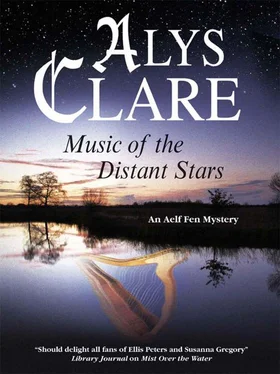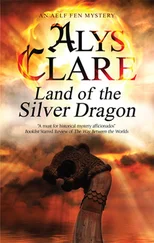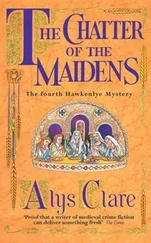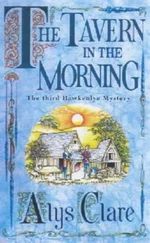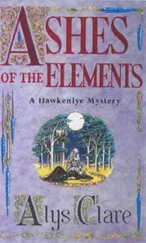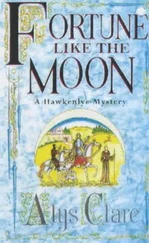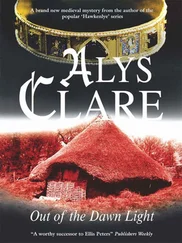Alys Clare - Music of the Distant Stars
Здесь есть возможность читать онлайн «Alys Clare - Music of the Distant Stars» весь текст электронной книги совершенно бесплатно (целиком полную версию без сокращений). В некоторых случаях можно слушать аудио, скачать через торрент в формате fb2 и присутствует краткое содержание. Год выпуска: 2011, Издательство: Ingram Distribution, Жанр: Исторический детектив, на английском языке. Описание произведения, (предисловие) а так же отзывы посетителей доступны на портале библиотеки ЛибКат.
- Название:Music of the Distant Stars
- Автор:
- Издательство:Ingram Distribution
- Жанр:
- Год:2011
- ISBN:нет данных
- Рейтинг книги:3 / 5. Голосов: 1
-
Избранное:Добавить в избранное
- Отзывы:
-
Ваша оценка:
- 60
- 1
- 2
- 3
- 4
- 5
Music of the Distant Stars: краткое содержание, описание и аннотация
Предлагаем к чтению аннотацию, описание, краткое содержание или предисловие (зависит от того, что написал сам автор книги «Music of the Distant Stars»). Если вы не нашли необходимую информацию о книге — напишите в комментариях, мы постараемся отыскать её.
Music of the Distant Stars — читать онлайн бесплатно полную книгу (весь текст) целиком
Ниже представлен текст книги, разбитый по страницам. Система сохранения места последней прочитанной страницы, позволяет с удобством читать онлайн бесплатно книгу «Music of the Distant Stars», без необходимости каждый раз заново искать на чём Вы остановились. Поставьте закладку, и сможете в любой момент перейти на страницу, на которой закончили чтение.
Интервал:
Закладка:
‘It sounds alarming,’ Edild observed.
‘It is,’ I agreed. ‘But he realized I was disturbed by his scrutiny, and immediately he stopped. I wouldn’t wish to be his enemy.’ I shuddered. ‘I should think he could be ruthless.’
I pictured Gurdyman’s round, smiling, strangely unlined face. Then the image was superimposed by another. The sage’s face grew stern and seemed to alter shape, so that the bones under the plump cheeks and the smooth brow became prominent, the flesh melted away and the kindly eyes turned harsh and penetrating. I gave a small gasp, and instantly the familiar, friendly face returned.
Was it my imagination? Had the image of the frightening wizard been conjured up by my own mind because I had been wondering what it would be like to be his enemy? Or had Gurdyman himself planted it, as if to say, You saw my genial face. Do not be fooled into believing that is all there is to me.
I did not know.
Edild had cleared away our breakfast bowls and cups, and now I hastened to my feet to tidy our cots, folding the bedding and stuffing it and the pillows out of sight beneath the bed frames. The daylight was waxing fast, and soon our first patients would be coming to call.
I tried to concentrate on my work, but I kept being distracted. I thought of Sir Alain and Ida. I imagined them together, those two people who seemed made for happiness and laughter, and who, if the world were arranged differently, would undoubtedly have wed, raised a family and lived as happily as it is possible for humans to live. I dare say I was romanticizing them, believing what I wanted to believe, and I was undoubtedly making too much of what scant evidence I had so far. I had been told that Sir Alain had visited Heathlands, and I kept telling myself that was all I knew. To leap from that one simple fact to proposing that Alain and Ida were so well suited that they would have married if they could was pure invention.
Yet, as the morning wore on and my battle to fix my mind on my work became more and more challenging, the quiet little voice at the back of my head insisting that I was right refused to be silenced. And just how, I wondered in silent frustration, could that rose-tinted vision of the pair of them accord with my new certainty that it was at Sir Alain’s hands that poor little Ida had died?
In the end Edild lost patience with me. In our work, inatten-tiveness is potentially very dangerous. I muddled someone’s symptoms, reporting to my aunt that the man had bellyache when in fact, as he was quick to correct me, he was severely costive. Then, later, I handed her a jar containing dried wormwood stems instead of the pot of willowherb leaves she had asked for. She noticed instantly — of course she did, the two are quite dissimilar — and quietly but forcefully thrust the wormwood back into my hand. ‘Go and wait for me outside!’ she hissed.
I went. I do not often make my aunt angry, and I hate it when I do. I waited until her patient emerged, clutching the infusion Edild had just prepared that would swiftly ease his headache, and after a moment she followed.
She studied me for a while. Then, instead of the castigation I had expected and richly deserved, she said, ‘You are no use to me today indoors. Go and gather some sweet flag root. We’re getting low.’
I dipped my head meekly in acknowledgement. I fetched my collecting basket from the outhouse and hurried away before she could change her mind.
The yellow flag — which we also call gladden — serves mainly as a purgative, using the fresh roots. It likes wet, marshy ground, so I went down the path from Edild’s house, crossed the track leading towards the hall and set off towards the soggy ground where land gives way to water. I worked steadily, taking a little from several plants rather than filling my basket from one single place. Edild says we must respect that plants have a right to life too, and that taking too much of one plant’s root would probably kill it. Each time I cut some root I chanted the little song of thanks that my aunt had taught me.
I found that I had wandered almost as far as the fen edge. Stopping, I put down my basket, which was getting heavy, and put my hands to the small of my back. I had been bending down for too long and short, sharp stabs of pain were my reward. I was quite close to the place where the little causeway goes across to the island. I decided to pay a quick visit to Granny, guilty suddenly because I had been neglecting her since the discovery of Ida’s body.
I left my basket where it was to collect on my return and hurried off. The ground was reasonably firm now, so soon after midsummer, for the weather had been fair and we had not had much rain. It would be a different matter in autumn, when the equinox gales sweep in and the rain lashes the land. We would by then have taken away the planks and supports of our temporary bridge, the way to the island would become impassable and Granny Cordeilla would be left all by herself with the ancestors.
I did not think she would mind. They were her own kin, she had known and loved several of them in life, and she had no doubt communed with those who had died before her birth long before she went to join them.
I crossed over the narrow planks and jumped down on to the island. I went to stand over the big slab that marked Granny’s grave, opening my mind and my heart to her. I was just closing my eyes when I noticed something: a tiny wreath made of grass wound into a circle and laced with wild flowers, the whole thing about the size of my palm.
I bent down to study it. It lay half under the stone slab, so that it had been hidden as I approached. It looked as if someone had wanted to put it as close as possible to the tomb, but without going so far as to move the slab and put it inside.
I don’t know why, but I felt sure it had been left for Ida and not for Granny. Perhaps it was the furtiveness of the placement. If any of us had brought a little offering for our dead relative, we would have left it where all could see it. I looked at the craftsmanship of the little wreath, noticing that it was crude, the grass stems already beginning to unravel. It looked like the work of a child.
I heard a voice in my head. It was Sir Alain’s. He used to make little posies for her, clumsy things of grass stems woven together with a couple of flowers stuck in.
Then I knew who had left it.
It made sense, too, because he probably thought she was still here. .
I was filled with pity for him, poor Derman, mourning the girl he had loved from afar, driven to some furtive, night-time visit to the place where he believed her body was interred and leaving his pathetic little offering. I wondered where he was hiding, almost certain that he had not strayed far from this spot. He must have missed them when they came to take her off to Lakehall — he’d probably still been back at home with Zarina, where I had left him that terrible morning — and he could not have seen the sad procession when her body was taken to be reburied close by the church. Perhaps, exhausted by his grief, he had been sleeping somewhere, curled up in whatever nest he had made for himself. Perhaps he had been off looking for something to eat, for there was little to sustain a grown man in the immediate vicinity.
‘Where are you, Derman?’ I said aloud. ‘I know you are afraid and do not understand, but you should go home. Zarina is very worried about you.’
Was that good advice, though? Even if Derman could hear me, should he obey? I was not at all sure. I was convinced he hadn’t killed Ida — I did not allow myself to think about who might have done — but the rest of the village certainly didn’t share that view. There was still too much talk of going out to hunt for Derman, and not with anything charitable in mind like wrapping him in a warm blanket and bringing him home.
Читать дальшеИнтервал:
Закладка:
Похожие книги на «Music of the Distant Stars»
Представляем Вашему вниманию похожие книги на «Music of the Distant Stars» списком для выбора. Мы отобрали схожую по названию и смыслу литературу в надежде предоставить читателям больше вариантов отыскать новые, интересные, ещё непрочитанные произведения.
Обсуждение, отзывы о книге «Music of the Distant Stars» и просто собственные мнения читателей. Оставьте ваши комментарии, напишите, что Вы думаете о произведении, его смысле или главных героях. Укажите что конкретно понравилось, а что нет, и почему Вы так считаете.
